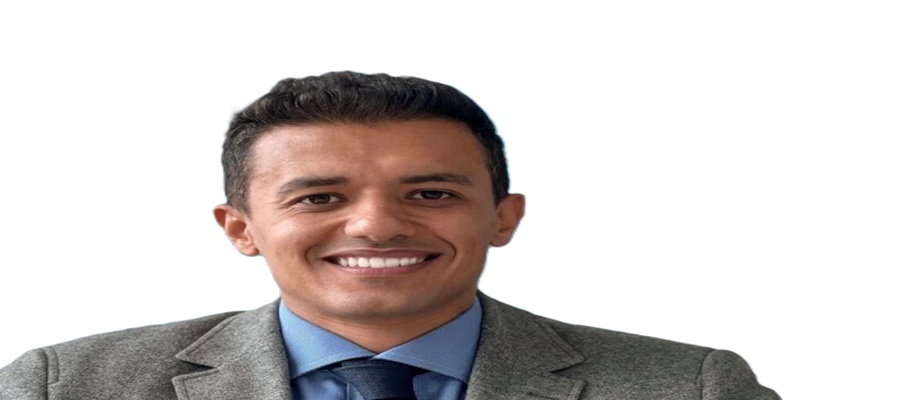Telecom
Nigeria’s Aggressive Taxes is Cause of Bad Network – Report

Nigeria’s multiple and aggressive implementation of taxation on telecommunications companies is the cause of bad network quality, according to nairametrics.com

This was disclosed in a report released by SB Morgen titled “Inside Nigeria’s Subnational Fiscal Crisis”.
The report stated that the telecommunications industry appears to suffer disproportionately from this over taxation in Nigeria.
The report also revealed that there are over 40 different taxes and levies meted out upon the Mobile Network Operators (MNOs) carrying out telecom services in Nigeria.
However, the aggressive taxation of this sector has led to the degradation of network quality causing Nigerians to suffer the consequences.
What the report is saying
The report stated that the poor network quality is an evident result of telecoms corporations’ numerous taxation.
It said, ”A clear impact of multiple taxations of telecommunications companies is the degradation of network quality. This mostly occurs when state authorities, in a bid to enforce compliance in payment of taxes, lock up the facilities of telecom operators and deny them access to their sites for refuelling, maintenance or fault resolution.”
The report stated that the regulator’s forceful lockout of telcos would result in catastrophic network disruptions, affecting a large number of Nigerians.
The report said, “The lockouts are quite often targeted at large sites, which effectively paralyses a good section of the network, causing complete network outage for the affected communities over an area that could stretch across as many as two or more adjoining states.”
According to the report, the effects of such network failures are not limited to the impacted telecommunications network but may spread to others as affected clients transfer to other network providers when they are unable to enjoy service from their current network providers.
The report said, “telecommunications operators in Kogi State warned that the shutting down of their sites by the Kogi State government in a bid to force operators to pay more taxes and levies could lead to a communications blackout in as many as 11 states.”
The report added that “State governments often lock telcos out of their facilities in a bid to collect various taxes. Oftentimes this leads to a degradation of network quality”
What you should know
The Nigerian National Broadband Plan 2020-2025 estimates that 4G coverage is at 37% and has a target of achieving coverage of at least 90% of the population and a penetration rate of 70% by the end of the plan’s lifetime and delivering data download speeds of about 25Mbps in urban areas and 10Mbps in rural areas.
It also forecasts that for every 10% increase in broadband penetration, the country’s Gross Domestic Product (GDP) rises by 2.6-3.8%, making this an economically significant initiative.
According to Nigeria’s GDP data, the telecommunications sector had a nominal GDP of N14.1 trillion as of December 2021 compared to N5.3 trillion for the entire financial services sector.10 years ago (2021), Telecommunication Sector has a nominal GDP of N5.3 trillion while banks had a GDP nominal size of N1.49 trillion.
Telcos have a customer base and demand that will drive increased revenues and profitability in the coming years, with over 199 million active mobile users. Telcos also have the capability and capital to diversify into other areas of the economy, beginning with banking. MTN’s latest MOMO license provides the company with a new source of revenue.
Nairametrics reported that Nigeria’s telecommunications behemoth, MTN Nigeria, is now worth N5 trillion, making it more valuable than all banks, insurance companies, and financial services firms listed on the Nigerian Stock Exchange combined.
Telecom
Spacecoin Secures Licenses to Roll Out Satellite Connectivity in Nigeria, Kenya

Spacecoin, US-based, has announced the signing of recent agreements with local authorities and operators to launch satellite connectivity pilot projects in Africa.

The initiatives, focused on Kenya and Nigeria, aim to serve areas where terrestrial networks remain limited or unavailable.
n Kenya, Spacecoin has obtained a transmission license from the Communications Authority, allowing it to test satellite-based solutions for connectivity and Internet of Things (IoT) monitoring, particularly in rural and peri-urban areas with limited internet access.
According to the Kenyan regulator, internet penetration remains below 50% of the population, despite mobile penetration exceeding 130%.
In parallel, the company is continuing operations in Nigeria under an existing license issued by the Nigerian Communications Commission (NCC).
This authorization supports initiatives aimed at delivering affordable broadband connectivity to isolated and underserved communities.
Spacecoin’s approach is based on a decentralized satellite network using nanosatellites in low Earth orbit (LEO).
Combined with blockchain-based protocols, this architecture is intended to offer more flexible and cost-effective connectivity services than traditional networks, while also enabling the integration of IoT solutions for a range of uses, from smart agriculture to infrastructure monitoring.
These projects are part of a broader strategy to help narrow Africa’s digital divide, where a significant share of the population still lacks access to reliable internet services.
Satellite technology is increasingly viewed as a complement to terrestrial infrastructure, particularly in hard-to-reach areas where deployment costs and geographic constraints remain high.
Beyond Africa, Spacecoin is also running pilot projects in Asia, working with local partners to test the viability of its model across different regulatory and geographic environments.
According to the company’s management, growing interest from regulators reflects a shift toward solutions capable of reaching populations that have long been excluded from internet access.
Telecom
AVEVA Names Khaled Salah Vice President for Africa to Drive Growth

AVEVA, a global leader in industrial software, driving digital transformation and sustainability, today announces the appointment of Khaled Salah, 37 years old, as Vice President of Africa.

Khaled Salah
In this new role, he will be responsible for about 30 employees to ensure the successful implementation of AVEVA’s growth strategy. Khaled Salah will report directly to Jesus Hernandez, SVP of the EMEA region.
A 15-years + career across different industries and domains
With a MBA in management from the Warwick business school, UK, and a master’s degree in engineering from Ain Shams university in Egypt, Khaled Salah is an active advocate for driving sustainable progress in the industrial sector. With Sustainability in mind, Khaled is keen on making a positive business impact, while fostering progress for people and the planet.
He started his career at Schneider Electric, in 2013 in the global supply chain and evolved through various roles such as Europe procurement and supply chain strategy Manager, and Global Commercial strategy Director for the industrial automation business. Khaled Salah has developed a strategic understanding of all those fields.
After 12 years in Schneider Electric, Khaled joined AVEVA in 2022 to lead AVEVA and Schneider Electric global strategic partnership, across all industries managing a team of 30 people.
He has led the introduction of new AVEVA software solutions to initiate and develop significant growth areas across all Schneider Electric verticals.
Ambitious plans for AVEVA in Africa
In addition to his current role as AVEVA and Schneider Electric partnership Vice-President, Khaled now takes over the management of AVEVA’s activities in Africa.
Jesus Hernandez, SVP of the EMEA region says: “Africa is a strategic region for AVEVA. In this major industrial market, customers, world leaders in the fields of Energy, Metal & Mining, Chemicals, and Water, are looking for AVEVA’s expertise to accelerate and drive their digital transformation and sustainability strategies, as well as their energy transition projects.
“Khaled Salah’s qualities of leadership in a global environment will benefit his team spread across 12 countries including Algeria, Morocco, Egypt, Kenya, Nigeria, and South Africa.”
Motivated by the prospect of capitalizing on the talent of his team to strengthen AVEVA’s presence in Africa in the years to come, Khaled Salah says: “Helping my team realize their professional potential is close to my heart.
“We will work together to support and accelerate the digital transformation of industries in Africa, in particular through CONNECT, our industrial intelligence platform, with the support of our ecosystem of partners. »
Telecom
Google Report: Nigeria Leads Global AI Adoption in Learning, Entrepreneurship

A Google-Ipsos report reveals Nigerians topping global AI usage at 88%, surpassing the 62% worldwide average, with sharp rises in education and business applications.

“Our Life with AI: Helpfulness in the hands of more people” shows 93% of Nigerians using AI for learning complex topics versus 74% globally, 91% for work assistance, and 80% for new ventures—nearly double the 42% global rate.
Taiwo Kola-Ogunlade, Google’s West Africa Communications Manager, stated: “Nigerians are creatively using AI to unlock opportunities for learning, growth, and economic empowerment, shaping their future with technology.”
Key findings highlight 91% viewing AI positively for learning access, 95% expecting benefits for students and educators, and strong optimism—80% excited versus 20% concerned, compared to global 53%-46% split. Frequent users show 90% excitement

 E-Financial3 days ago
E-Financial3 days agoHere Are Nigerian Banks That Have Secured Their Licences

 E-Financial3 days ago
E-Financial3 days agoZenith Bank Top Nigerian Bank Pick Ahead of GTCO, AccessCorp

 Telecom3 days ago
Telecom3 days agoMTN CEO Toriola Hails Nigeria’s Telecom Transformation at MIPAD

 News3 days ago
News3 days agoICPC Charges Ozekhome with Forgery, Corruption Over London Property

 E-Financial3 days ago
E-Financial3 days agoNigeria Processed $92.1Bn Crypto Transactions in 12 Months — PwC

 E-Financial3 days ago
E-Financial3 days agoHow Crypto Criminals Stole $700m from People – often Using Age-Old Tricks

 General News2 days ago
General News2 days agoCybersecurity Firm Detects a Wave of Crypto Phishing Following BlockFi Bankruptcy

 Telecom3 days ago
Telecom3 days agoLebara Launches Agent Registration Portal



























